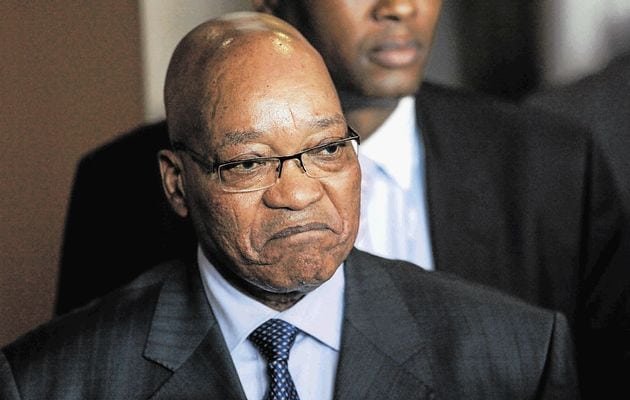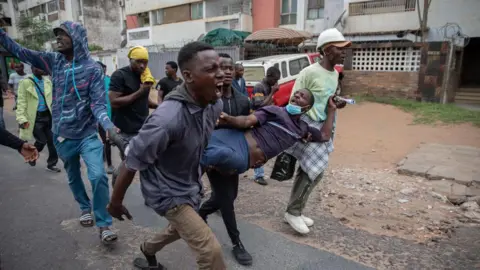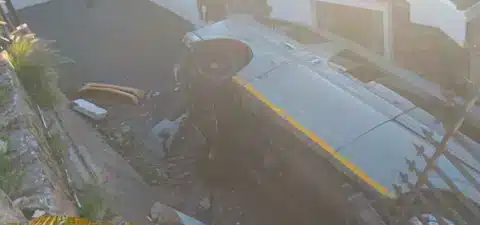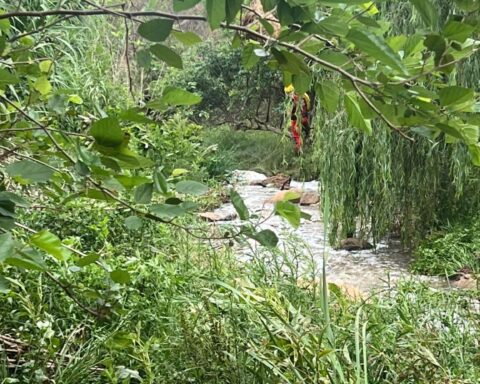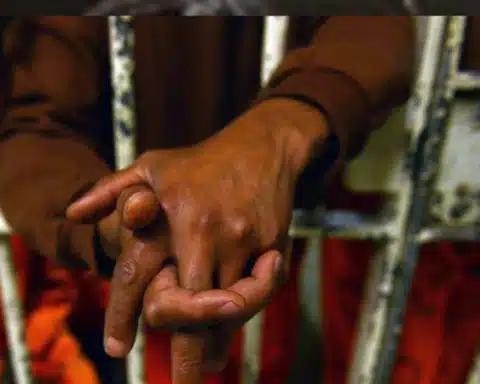By Simon Allison | The Guardian |
The South African president, Jacob Zuma, has narrowly survived a motion of no confidence against him in parliament, the most serious attempt yet to unseat him after months of growing anger over allegations of corruption and a sinking economy.
President Jacob Zuma
It was the sixth such vote of his increasingly beleaguered presidency, but the first involving a secret ballot, with a broad coalition of opposition parties and renegade MPs from the ruling African National Congress (ANC) falling just short of the simple majority needed to force Zuma and his cabinet to resign immediately.
The ballot counting was accompanied by scenes of singing and dancing on both sides of the assembly, as rival parties sought to project confidence. “We taught you this song, and you don’t even sing it properly,” jeered the opposition Economic Freedom Fighters leader Julius Malema, dressed in signature red overalls, addressing his ANC counterparts.
Baleka Mbete, the National Assembly’s speaker, announced the result: 198 MPs voted against, compared to 177 in favour. There were nine abstentions. “Therefore the motion of no confidence in the president is accordingly negative,” declared Mbete.
ANC MPs in parliament whooped and danced at the news.
In the hours before Tuesday’s vote, a series of coordinated protests across South Africa demanded Zuma’s removal. A petition signed by more than a million people was delivered to the deputy president, Cyril Ramaphosa, who is seen as Zuma’s main rival.
Zuma, 75, has never been far from scandal since he became president in 2009. Another major criticism raised during the parliamentary debate included allegations that he had allowed the state to be “captured” by the Guptas, an Indian business family that has been at the centre of a string of media exposés about graft in government and state-owned enterprises.
The no-confidence motion was brought by the Democratic Alliance, the largest opposition party, in response a cabinet reshuffle in March, in which Zuma sacked the popular finance minister Pravin Gordhan. The president was playing “Russian roulette” with the economy, according to the DA leader, Mmusi Maimane.
“I never imagined that one day I would be here in this parliament fighting a new form of oppression,” Maimane said during the debate on the motion. “A corrupt system that keeps our people imprisoned in poverty. If you told me that one day our democratically elected president would end up corrupted and captured by a criminal syndicate, I would have never believed you. But here we are.”
In response, ANC MPs argued that the party remained united behind Zuma, and had set up internal processes to deal with accusations of corruption and poor governance. The no-confidence motion was dismissed repeatedly as an attempted power grab by the opposition.
“[The opposition] are using the constitution so as to collapse government, deter service delivery and sew the seeds of chaos in society so as to ultimately grab power … Shame on you!” said Doris Dlakude, the ANC’s deputy chief whip.
Although Zuma has survived this battle, he is still fighting for his political future. His term as president expires in 2019, and under the South African constitution he cannot run again.
More immediately, his term as president of the ANC expires in 2017. He is lobbying hard to install the former African Union Commission chair Nkosazana Dlamini-Zuma, who is his ex-wife, as his successor. Opponents within the party are largely rallying behind Ramaphosa, although there are other names in the mix.
